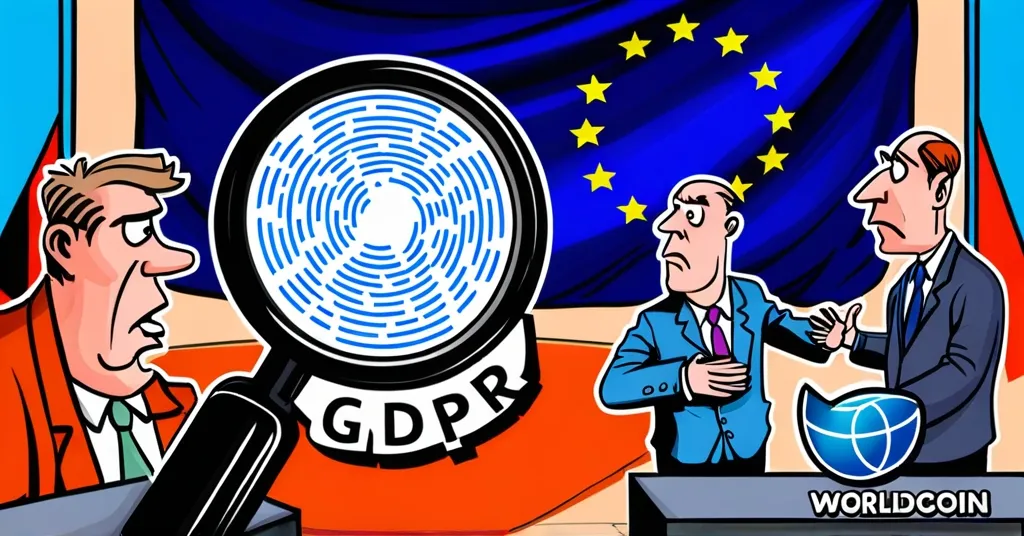Worldcoin Ordered by German Regulator to Overhaul Privacy Practices Compliance

German Regulator Demands Worldcoin Overhaul Privacy Practices
Data privacy has become a critical concern in today’s digital age, particularly with the rise of biometric data usage. A recent decision by the Bavarian State Office for Data Protection Supervision (BayLDA) has put the spotlight on Worldcoin, a company aiming to revolutionize digital identities using biometric data. This move demands Worldcoin to significantly enhance its privacy practices to align with the European Union’s General Data Protection Regulation (GDPR).
- Worldcoin must establish a GDPR-compliant data deletion process within a month.
- Explicit consent from users is required for specific data processing activities.
- Any data collected unlawfully must be erased immediately.
- Operations in some EU regions were paused amid the investigation.
GDPR is a set of stringent data protection rules implemented by the European Union to safeguard personal information. Biometric data, such as iris scans, are unique identifiers that necessitate careful handling, making Worldcoin’s activities subject to rigorous scrutiny. This scrutiny is not confined to Europe; Worldcoin faces challenges in regions like Kenya, Hong Kong, and Singapore as well.
“With today’s decision, we are enforcing European fundamental rights standards in favor of the data subjects. All users who provided Worldcoin with their iris data will now have the unrestricted right to demand the erasure of their data,” stated Michael Will, President of BayLDA. This reflects the core principle of GDPR: protecting individuals’ rights over their personal data.
Global Regulatory Landscape
Worldcoin’s innovative approach in creating digital identities illustrates the delicate balancing act between advancing technology and adhering to data protection laws. The company’s temporary halt of operations in certain EU regions underscores the significant compliance challenges it faces globally. The varying international data protection standards present a formidable obstacle for companies attempting to navigate the regulatory landscape while pushing technological boundaries.
Future Implications
As data privacy laws like GDPR gain traction worldwide, it’s crucial for companies in the digital identity space to remain vigilant and proactive in ensuring compliance. Worldcoin’s situation emphasizes the urgent need for robust data protection strategies and the importance of user consent in biometric data handling. How Worldcoin adapts to these challenges could serve as a benchmark for other tech companies in similar fields.
Key questions arise from Worldcoin’s experience:
- What specific strategies can be implemented to ensure compliance with diverse international data protection laws?
- How can companies better safeguard minors involved in data collection practices?
- What is the impact of stringent data protection laws on the pace of technological innovation?
The case of Worldcoin is a reminder that as digital identities become more prevalent, the debate between technological progress and personal privacy will continue to intensify. Companies at the forefront of this technological advancement must strive to innovate responsibly, ensuring that privacy and compliance are not mere afterthoughts but integral components of their operational strategies.
As the digital landscape evolves, keeping a close watch on regulatory developments and prioritizing user consent and data protection will be essential for companies seeking to thrive in the future. How the story of Worldcoin unfolds will offer valuable insights into the intersection of innovation and regulation, shaping the direction of digital identity technologies.


